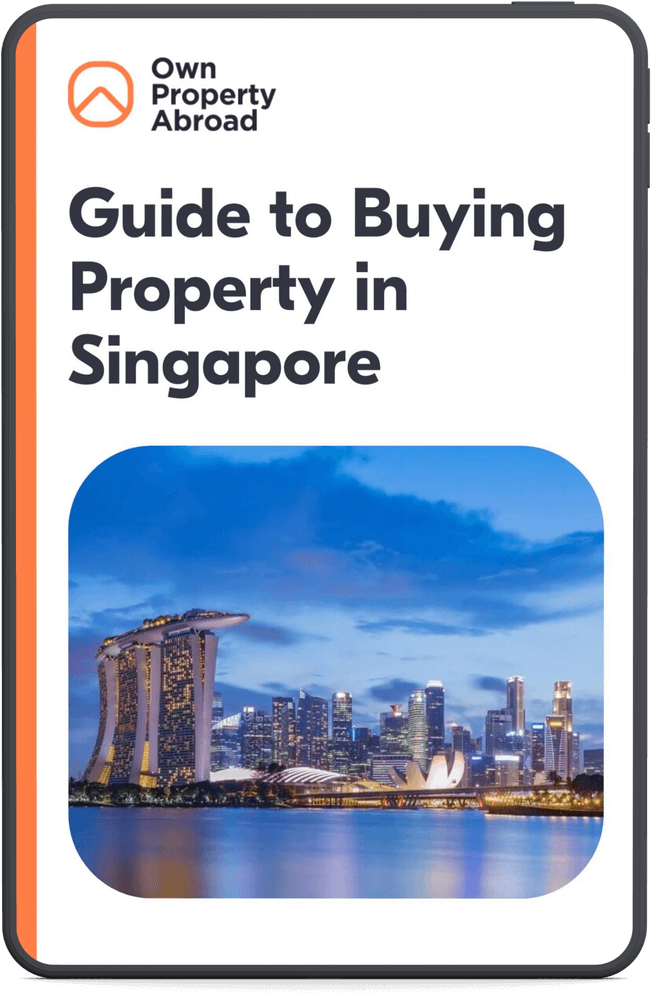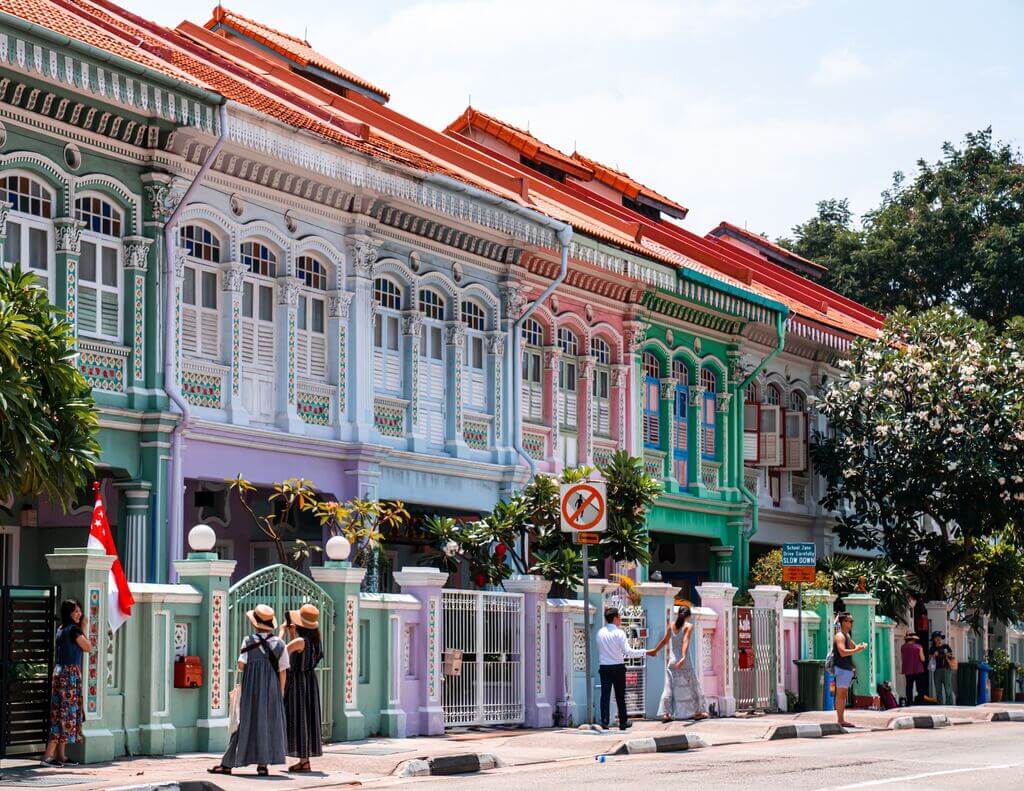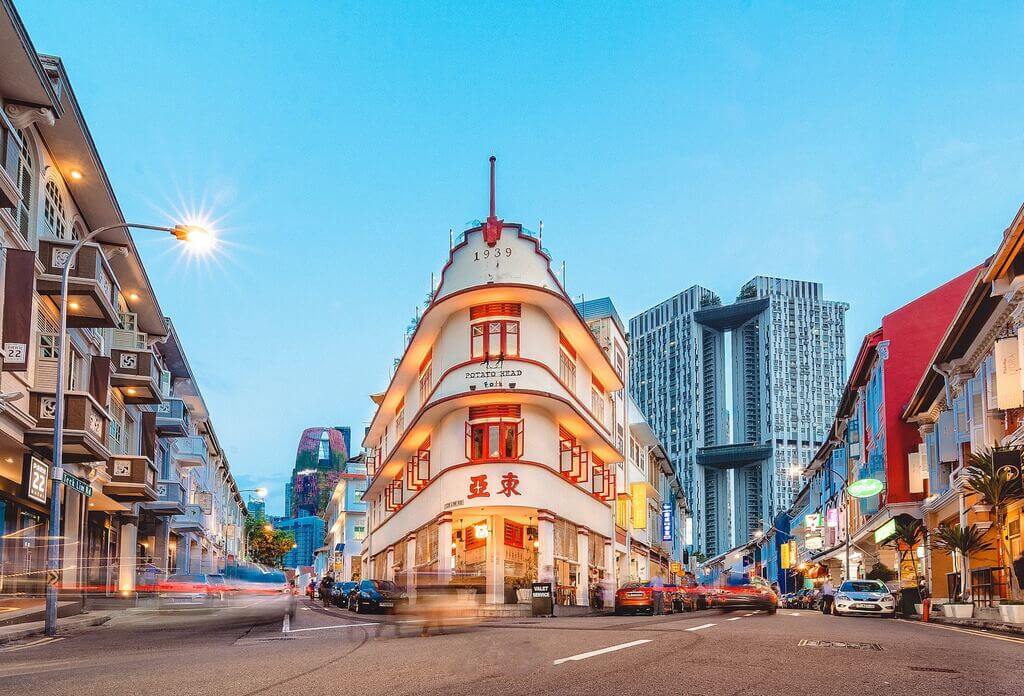What is landed property in Singapore?
Landed property in Singapore is a category of residential housing that involves ownership of both the land and the property. Landed property in Singapore differs from apartments and condominiums (condos), where the owner only owns a part of the property structure.
Finding landed property for sale in Singapore is challenging due to the scarcity of land in Singapore. Because of that, owning a landed property in Singapore is often seen as a status symbol. Finding cheap landed property in Singapore is almost impossible unless you work with a local real estate agent who knows the property market.
Although buying landed property in Singapore is considered an excellent long-term investment, one can also rent landed property. One of the benefits is that this will save money in the short term, as the tenant doesn’t have to pay a large sum at once or any maintenance cost of the landed property in Singapore.
Types of landed property in Singapore
There are many landed properties for sale in Singapore. These are the types of landed property in Singapore you can find:
- Terrace houses: Houses in a row with (usually) sharing side walls with the houses next to them.
- Detached houses: Standalone houses that don’t share walls with other properties.
- Semi-detached houses (bungalows): Pair of houses with a shared wall.
- Shophouse (non-commercial use): This commercial house in Singapore is used for non-commercial activities.
- Place of worship: A property that is used for prayer.
- Good Class Bungalows (GCBs): You find Good Class Bungalows in designated GCB areas. This type of landed property in Singapore is considered the best and only exclusively available.
This means all other types of property are not considered landed properties. These are condominium units, flat units, strata landed houses in an approved condominium development, leasehold landed property (if the agreement doesn’t exceed seven years), shophouse (commercial use), industrial properties, commercial properties, hotels, executive condominium units, HDB flats and HDB shophouses (sold by the Housing & Development Board).
Valuable insights and practical advice, distilled from years of expertise and real-world experience.


Can foreigners buy landed property in Singapore?
Special rules and regulations exist on Singapore’s foreign real estate ownership of landed property. According to the Residential Property Act, foreigners can only buy landed property in Singapore after approval from the Singapore Land Authority (SLA). Someone is considered a foreigner if they are not a Singapore citizen, Singapore company, Singapore limited liability partnership or Singapore society.
Requirements to get approval from the Singapore Land Authority
Every foreigner can apply for approval from the Singapore Land Authority to buy landed property in Singapore, although there are specific requirements a foreigner should meet. It’s important to remember that even if a foreigner meets all conditions, the Singapore Land Authority can still deny the application for approval. These are the most important requirements for landed property in Singapore:
- The foreigner should be a permanent resident of Singapore for at least five years;
- The foreigner must make an exceptional contribution to Singapore’s economy.
However, foreigners can buy a landed house in the incredibly exclusive Sentosa Cove without approval from the Singapore Land Authority.
What is the price of landed property in Singapore?
The price of landed property in Singapore differs based on the property type and location. You find an overview of the average prices of landed properties in the table below.
| Property type | Average price |
|---|---|
| Terrace house | SGD 1.8 million ($1.35 million) to SGD 6.8 million ($5.11 million) |
| Semi-detached house | SGD 3.2 million ($2.4 million) to SGD 13.3 million ($9.99 million) |
| Bungalow | SGD 3.8 million ($2.85 million) to SGD 22.5 million ($16.9 million) |
| Good Class Bungalow (GCB) | SGD 9.9 million ($7.43 million) to SGD 110 million ($82.61 million) |
The cost of landed property for rent in Singapore is much lower than the selling price.
Legal fees
You might have to pay legal fees to the law firm for handling all paperwork. Using the bank’s default firm is easier, but working with a cheaper lawyer is an option. The fees vary for Building Under Construction (BUC), new sales, and resale:
- BUC property: SGD 2,500 ($1,878) to SGD 3,200 ($2,403)
- Resale property: SGD 2,800 ($2,103) to SGD 3,000 ($2,253)
- New sale property: SGD 2,300 ($1,727) to SGD 2,800 ($2,103)
When buying a landed house in Singapore, it’s essential to consider additional costs, such as the maintenance cost of landed property in Singapore and property taxes.

How to buy landed property in Singapore in 8 steps
Buying a landed house in Singapore as a foreigner involves multiple steps due to local restrictions and guidelines. Below is a step-by-step guide explaining how to buy landed property in Singapore.
Step 1: Understand the rules for foreigners
Before starting the purchasing process, it’s important to note that as a foreigner, there are limitations on the type of Singapore’s landed properties you can purchase. These limitations are primarily restricted to Sentosa Cove unless special permission is obtained.
Step 2: Engage professionals
It is advisable to hire a property agent in Singapore who specializes in landed property and has experience assisting foreigners with the purchase. Additionally, hiring a lawyer who can provide guidance on legal procedures, due diligence, and documentation is recommended.
Step 3: Check eligibility
If you’re interested in buying a landed property, you must verify if it can legally be sold to a foreigner. If not, seek approval from the Singapore Land Authority. Singapore citizens, companies, limited liability partnerships, or societies can skip this and proceed to step 5.
Step 4: Apply for approval from the Singapore Land Authority
To purchase a landed property in Singapore as a foreigner, you must apply to the Singapore Land Authority (SLA). The application should include personal information, qualifications, contributions to Singapore (economic or otherwise), family ties in Singapore, and details about the property of interest.
Note: Approval is not guaranteed and is often given only in exceptional cases.
Step 5: Make an offer
After identifying the property and ensuring all prerequisites, make an offer. If accepted, sign an “Option to Purchase” (OTP) agreement and pay an option fee (often 1% of the purchase price) to secure the option.
Step 6: Exercise the OTP
Before the OTP expires, you must sign the agreement and pay an additional 4% to 9% of the purchase price to exercise the option.
Step 7: Pay Additional Buyer’s Stamp Duty (ABSD)
Foreign buyers are subject to Additional Buyer’s Stamp Duty (ABSD), which is a percentage of the property’s purchase price or market value, whichever is higher. Make sure to know the current rates and budget accordingly.
Step 8: Complete the sale
Complete the sale by signing the Sales and Purchase Agreement and making the final payment. Your lawyer will assist you with legal documentation and transfer the property title to your name.
Step 9: Pay property taxes
Once you own the landed property, you will be liable for annual property taxes. The amount you pay will depend on whether you live or lease the property.
Where to find the best and cheapest landed property in Singapore
Finding the best and cheapest landed property in Singapore can be challenging, given that properties located in the best locations in Singapore usually come at a premium price. These are some strategies to consider to find the best or cheapest freehold landed property in Singapore:
- Consult property websites: Start your property search by filtering listings on websites like PropertyGuru, 99.co, and SRX Property based on price, location, and property type.
- Engage a local real estate agent: It can be invaluable to engage a reliable real estate agent who can guide you through the buying process, provide insights into good deals, and understand the market well.
- Look for direct listings: Homeowners may sell their properties directly without an agent, known as direct listings. This could reduce the price as there’s no agent commission involved. However, the buying process may require more effort without an agent’s assistance.
- Bank auctions or mortgagee sales: Properties that banks have foreclosed due to mortgage defaults are sometimes sold through auctions, which can offer good deals but also come with risks and complications.
Landed properties in the northern and western parts of Singapore, like Woodlands, Choa Chu Kang, or Jurong, tend to be more affordable historically. Additionally, older properties or properties located further away from MRT stations are cheaper. Here you might find a landed property below 500k in Singapore.
Buying landed property in Singapore
Understanding Singapore’s real estate regulations for foreigners is essential before buying property in Singapore. To navigate the legal framework effectively and ensure peace of mind, seeking guidance from professionals specializing in landed properties is recommended. This will not only save time but also guarantee a smooth transaction.
Valuable insights and practical advice, distilled from years of expertise and real-world experience.


Frequently Asked Questions (FAQs)
What percentage is landed property in Singapore?
Landed properties constitute a limited segment of Singapore’s real estate market, making up approximately 5-10% of the total housing stock. The scarcity is one of the reasons the price of landed property in Singapore is high.
Can you buy landed property in Singapore?
Yes, both locals and permanent residents can purchase landed property in Singapore, though foreigners face restrictions and typically require special approval from the Singapore Land Authority.
Which area is the best for landed property in Singapore?
Renowned for its exclusivity and prestige, districts like Bukit Timah, Holland Road, and Sentosa Cove are often seen as prime areas for landed properties in Singapore.
Is it worth buying landed property in Singapore?
Buying a landed property in Singapore is often seen as a status symbol and long-term investment, given the limited land availability and potential for appreciation, making it a valuable asset for many.
How much is a landed property in Singapore?
The price of landed property for sale in Singapore vary widely based on location, type, and size. Still, as of recent data, they can range from SGD 1.8 million ($1.35 million) for more modest terraced houses to over SGD 110 million ($82.61 million) for Good Class Bungalows in prime districts. It’s hard to find a landed property below 500k in Singapore, although it’s not impossible with help from a local real estate agent.
Can US citizens buy a landed property in Singapore?
US citizens, like other foreigners, face restrictions in purchasing a landed property in Singapore and usually require approval from the Singapore Land Authority, barring a few exceptions like properties in Sentosa Cove.
Can a company buy a landed property in Singapore?
Companies with foreign ownership face strict property purchase restrictions in Singapore and must seek approval from the Singapore Land Authority for each case. Singapore-based companies can buy landed property easily.
Can PR buy landed property in Singapore?
Permanent Residents (PRs) can buy landed property in Singapore, but approval from the Singapore Land Authority may be necessary depending on the property’s type and location.
Can a foreigner rent a landed property in Singapore?
Foreigners can rent landed properties in Singapore without owning them, making it an attractive option for those seeking more space and privacy during their stay.
Who can buy landed property in Singapore?
In Singapore, locals and Permanent Residents are eligible to purchase landed properties. However, PRs may need specific approvals. Foreigners face more stringent restrictions and require special permission from the Singapore Land Authority. There are some exceptions, like properties in Sentosa Cove.



